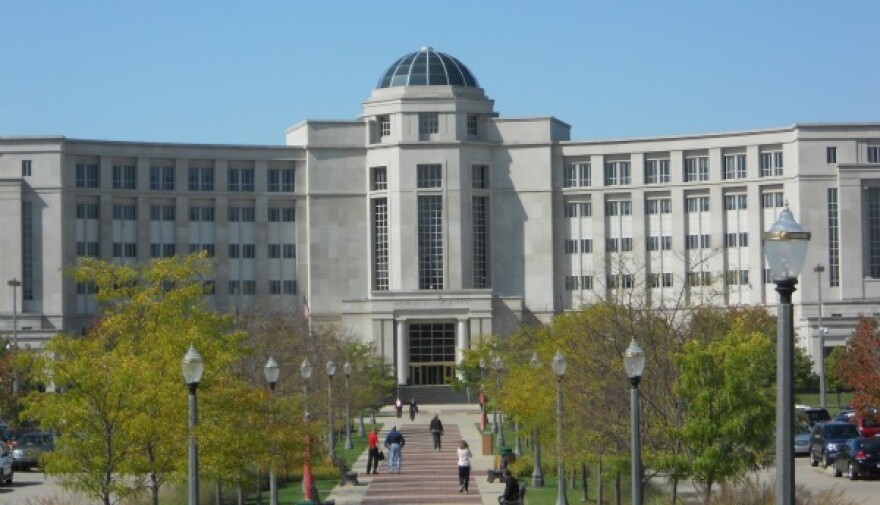A Michigan Supreme Court opinion has created confusion surrounding the state’s COVID-19 response. But Governor Gretchen Whitmer says she still has more options to require people to abide by mask and social distancing advice.
Health experts say that remains the most effective way to slow the spread of COVID-19 while legal and political fights play out.
The opinion raises lots of questions, and no shortage of assumptions, on the status of the governor’s emergency orders. Those orders effect stores and shops, schools, as well as indoor and outdoor gatherings.
There’s been a wide range of reactions on what the opinion means and when it takes effect.
University of Michigan law professor Richard Primus says no one should leave their mask at home yet. “In a strict legal sense, nothing has yet happened to invalidate the governor’s orders because the case hasn’t yet come to a full judgement," said Primus.
The closely divided advisory ruling says Whitmer relied on an unconstitutional law to continue to issue emergency orders without getting the approval of the Legislature, which is controlled by Republicans.
The ruling is advisory because it was requested by a federal court to help sort out a separate case, said Primus. “Now the case goes back to the federal court and until the federal court finishes, there’s no formal judgment in the case.”
But he said the decision still offers a pretty definitive signal of how the Michigan Supreme Court would rule when it comes time for the justices to make a binding decision in a state-level case.
Summer Shriner owns two shops in the city of Lansing’s Oldtown retail district. Shriner said her shops require masks and hand sanitizer, and will continue to do so, in part because some employees are immuno-compromised.
“When I heard about the Supreme Court opinion, to be honest, it just felt like a kick in the stomach.” Shriner said the executive orders put the force of law behind her efforts.
“It happens that we have the folks that don’t want to wear it or say it’s too difficult or pull it down to speak to us, you know, and it’s a constant, a constant source of anxiety, I guess.”
And she added it has been a struggle. “It’s been a struggle. It’s exhausting to fight with people on a regular basis to keep yourself and your staff and your other clients safe."
Shriner said she’s relieved Ingham County has its own mask mandate. And it’s true, the Supreme Court opinion, regardless of when it takes effect, would not stop counties, cities and townships from adopting their own emergency rules or ordinances.
Republicans say the Supreme Court opinion should push Whitmer to bargain. But Senate Majority Leader Mike Shirkey has said mandates that people wear masks are off the table.
Governor Whitmer said the Supreme Court opinion won’t be the final word on the matter. “We’re working to keep people safe and I am by no means undeterred or finished trying to protect the people of this state.”
The state Department of Health and Human Services has its own emergency powers and has issued emergency orders similar to the governor’s.
Governor Whitmer has also filed a motion asking the Supreme Court to provide more details on the status of her emergency orders. And to issue another decision that would explicitly allow the orders to remain in effect until October 30th while the situation is sorted out.





